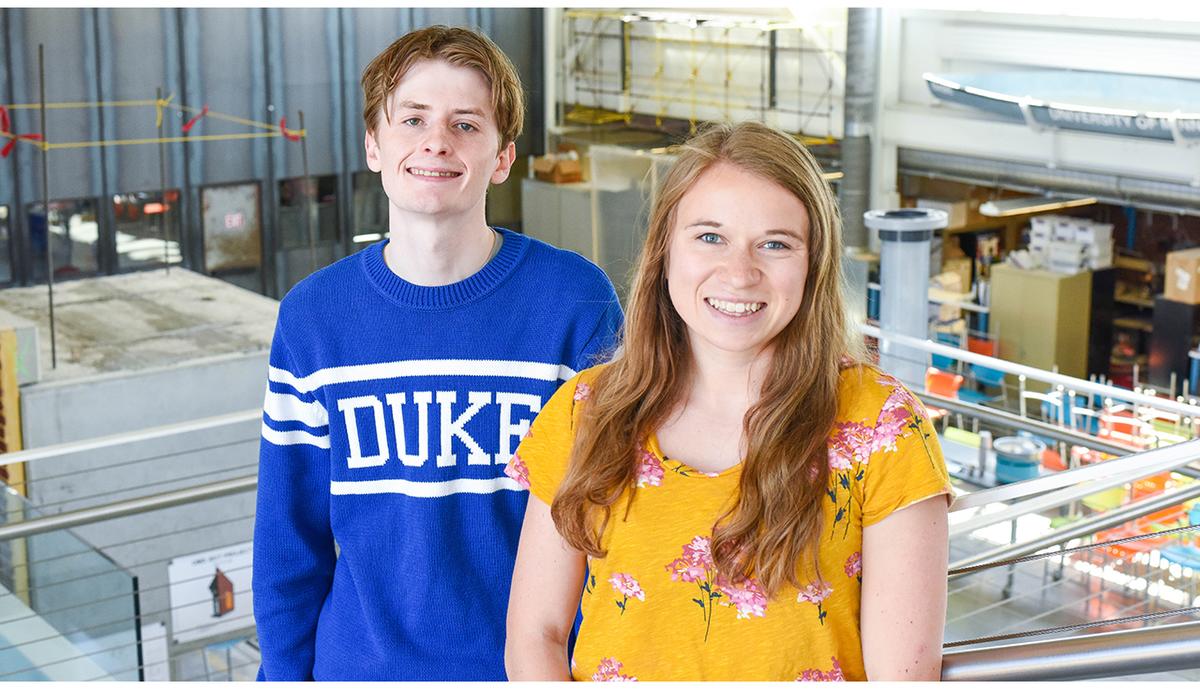Blake is now attending Duke university for a PhD in biology and Tayler is at the University of Colorado-Boulder pursuing a PhD in chemical engineering. Claire Anderson graduated in 2017 and is finishing her second year in the PhD program of the Bioproducts and Biosystems Engineering department at the University of Minnesota Twin Cities.
Getting this award
NSF Fellowships are a big deal. And according to Blake and Tayler, there are many different factors that go into it. They said it's a lot like applying to school all over again, except you need "a little extra."
- Good recommendation letters from people who know you both academically and through your research are essential.
- A strong research statement that proves you can formulate a plan and execute your research independently is also great.
NSF fellowships are open to senior undergraduates and first and second year grad students. Graduate applicants like Claire are already conducting their PhD research so they can focus on that. Whereas Tayler and Blake both applied while still completing their undergraduate degrees so they had to form a more general research statement along the lines of “this is what we think we can do.” They explained "that's where the recommendation letters are a big help."
Blake & Tayler also recommend creating a statement that will speak to a broad audience because you don’t know who is going to be judging and reading it.
Their Advice to You
"Get your feet wet in research and internships," said Tayler.
The more comfortable you are in the lab when you get there, then the less time you spend time training.
Faustee also recommends reaching out to advisors early and making connections. "The most important part is getting to know your advisors well," he said.
Lastly, they both said not to fret about that one “C” that you got in a class. It matters but, it’s really the research experience that makes the biggest difference.
Why UMD is Special
Tayler said she will miss the community here. She said the people in the athletic and chemical engineering departments became her family over the years. “It’s easy for me to talk to athletic directors about my research, but then I can come to the chemical engineering building and talk to them about athletics. They all know what you’re doing and want to keep up with it,” said Tayler.
Blake will miss Duluth as a whole. “It’s an incredible city and the campus is amazing. It’s very personal here. I don’t want to call it a small school because we have so many resources, but you really can just walk into a professor’s office and just talk. Whereas, at a bigger institution you’re more outnumbered there,” said Blake.
Claire's Research
Claire studies the biochemical mechanisms of wood decay fungi. She explained that Earth Systems Models struggle to predict the decay of wood, so understanding the decay mechanisms will help us better predict fluxes in the carbon cycle. She said, "The research and coursework I did at UMD provided a solid foundation for my current research."
Her research advisor was Dr. Guy Sander in the Chemical Engineering Department for a couple of years. It was her first experience working with fungi, and it sparked interest in this group of organisms and their potential for biotechnology. She’s still undecided about her career path in the future, as there are options in both academia and industry. However, she’s leaning towards working in a Research and Development department to create sustainable chemicals or products.
“The NSF Graduate Research Fellowship will significantly impact the rest of my graduate school experience. By providing funding for the next three years, it gives me the freedom to focus on the specific research questions I want to ask,” said Claire.
